Commission could investigate Kosovo murders of journalists
Jan Braathu, Head of OSCE Mission in Kosovo, interviewed by the Association of Journalists of Serbia (UNS)
Monday, 11.06.2018.
09:12
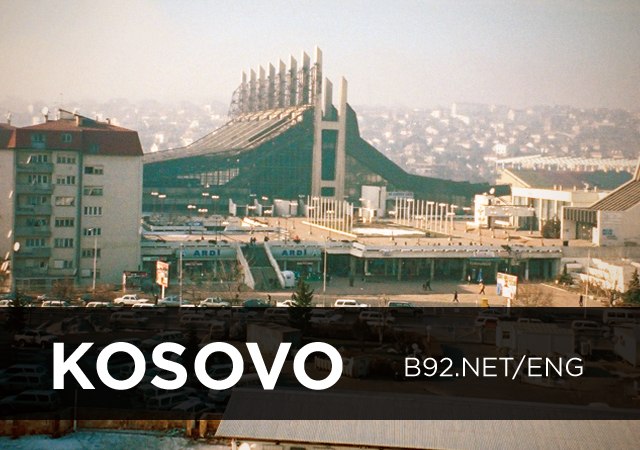
Commission could investigate Kosovo murders of journalists
"The Specialist Chambers (Kosovo War Crimes Court) has a specific mandate and I am not sure to what extent it will look at cases of kidnapped and murdered journalists. These cases were supposed to be investigated by international prosecutors and judges who led the rule of law in Kosovo for years, and I don’t have an answer to the question why this was not done. Our mission takes seriously the matter of safety of journalists and therefore we are considering the possibility of setting up the commission that would investigate these cases. This is all in the initial phase, but it is of vital importance that we have the political support of Kosovo authorities for this work, primarily the President" says Jan Braathu, the Head of OSCE Mission in Kosovo in an interview for the Journalists’ Association of Serbia (UNS) at the same time thanking this organization on its persistent and dedicated investigative work on this topic.The international mission in Kosovo has been here for 19 years. How do you explain that in so many years, out of 15 cases of murders and kidnappings of journalists and media workers, there was only one murderer who was brought to justice?
- I have not been here for 19 years, so I do not know what was going on, but it's unusual. It is unusual that the kidnappings and murders of well-known journalists were not investigated and prosecuted. That seems strange, considering that importance of the media and the role of journalists was emphasized from the beginning of the international presence. Also, the topic of journalists’ safety has been in focus throughout this time. So, it is very surprising, but I don’t have an answer. It is clear that immediately after the conflict there was a turbulent period in Kosovo both politically and in terms of security, so I assume that the focus of the international community went in the other direction. However, killed and kidnapped journalists would have been priority even in such situation, but it seems that they haven’t. I do not know what was done about the investigations, in cases when there were investigations, although I assume efforts were made. Immediately after the conflict, Kosovo was administrated by UNMIK and UN police. Maybe there might have been in-depth investigations, but they haven’t led to indictments, which raises many questions, but it is up to international community to respond because transparency is valid for all.
Between June 1999 and 2005, that is in the period when Kosovo was fully under international administration, nine of our colleagues were murdered and went missing. Wasn’t it the case that international mission in Kosovo became an accomplice in the impunity for crimes against journalists and media workers?
- I understand why you are asking this question. As I said, questions can and should be raised, but I cannot go as far as agreeing with the notion of accomplice. We should know more about what the international authorities that had jurisdiction in Kosovo did. I do agree, however, that it is very worrying that impunity persists in the cases of nine journalists who were killed and kidnapped under international watch. Six journalists were kidnapped or killed prior to June 1999.
Our research shows that UNMIK in some cases opened the case several years after our colleague was kidnapped, that some investigations were stopped under unusual circumstances, all in all, there are no indictments. When you do not investigate, and that's your job, in European countries you become an accomplice.
- Yes, I understand your question. This raises several questions, not just the question of the impunity for crimes against journalists, but also the question of the role and responsibility of international missions. That is an extremely important issue, but I am not the right person to answer. This is a question for the United Nations and others who were involved in the judicial process at the time.. Nevertheless, I will reply to you, not as the Head of the Mission, but as an individual who believes in the UN, its role, mandate and responsibility. Questions about the follow up on these cases raise concern. and should be answered.
You are the first senior international representative to visit the place where our colleagues from Radio Pristina, Đuro Slavuj and Ranko Perenić, were kidnapped 20 years ago. Should we understand this act of yours as readiness to truly do everything in your power to shed the light on the murders of our colleagues?
- In February last year, the OSCE Mission in Kosovo organized a conference focusing on the murders and kidnapping of journalists. The conference was attended by President Thaçi, who expressed his support for the investigation of murders and kidnappings of journalists. It was the first time since 1999 that an international organization has publicly raised this issue. We did that because our mission in Kosovo takes safety of journalists seriously, it's not something we just talk about, but we want to do something as well. Therefore, we are considering the possibility of setting up the commission that would address those cases, like the commissions that are established in Serbia and in Montenegro. All this is in the initial phase, but it is of vital importance for this work to have the political support of Kosovo authorities, above all, the President. I believe that we have this support, because President Thaçi also expressed the desire to go and pay tribute at the place where the memorial plaque to Đuro Slavuj and Ranko Perenić was placed. My presence on re-placing the plaque is a sign of solidarity, first of all with the families. They are still suffering, they are in pain and deserve that someone understand their situation. My presence is also a continuation of work that we launched in February last year.
Do you have any information that EULEX and KFOR are genuinely doing anything to shed light on the crimes committed against journalists and media workers in Kosovo?
- I have no information what other international organizations in Kosovo did related to this topic. EULEX is busy with preparations for the change of its mandate, which will happen on 14th of June when the mission mandate is expected to be amended. In terms of KFOR, I do not believe they are working on this topic because they have no mandate to investigate crimes. EULEX did have an investigative mandate since 2008, but with its present mandate and the one that will follow, it is not in position to initiate cases. This will be done by Kosovo institutions. EULEX is currently handing over a large number of documents to Kosovo police and judiciary. This opens up many questions, because we know that investigative capacities of the Kosovo Prosecution Office and police are limited, as it is the case in every prosecution office and police, and now at once, they are receiving so many cases, that somebody will have to go through. They are already lagging behind in their work, the same as everywhere in the region and I wonder what could they do in the nearest future. I think there is will in Kosovo judiciary, but due to practical reasons, this is a huge challenge to be done.
I asked you about KFOR (NATO) because we know that it collected intelligence information even before 1999 and thereafter. This information could be of great significance for investigations. What happened to them?
- The issue here is are we talking about KFOR reports or about national reports of KFOR member states. I think that you will find that we are talking about national reports first of all, and as we know, intelligence information of any sort are confidential. In essence, I do not know what KFOR or member states have.
Due to unpreparedness of institutions, namely due to their involvement in the murder of the famous Serbian journalist Slavko Ćuruvija in 1999 in Belgrade, an indictment against the murderers was issued only when the authorities established Commission to investigate murders of journalists, whose members include also reputable journalists. Could such a commission help processing of those responsible for murders and kidnapping of journalists and media workers finally in Kosovo as well?
- I don’t know, but I would like to think that would be the case. Establishment of such a commission brings this topic into the public focus and it is important that President Hashim Thaçi supported it. OSCE is currently working on it in order to check the possibility of establishing such a commission in Kosovo. The worst thing now is that these murders and kidnappings remain unaswered. They are on their way to be forgotten. We raised this issue and put it on the public agenda, and I think that commission would contribute to expanding investigation and raising the awareness of the public. Let me stress, we are not talking here about Serbian journalists only, but about both Serbian and Albanian journalists, and the last murder happened in 2005.
You are a diplomat with rich experience, reputation and you are an excellent connoisseur of political circumstances in former Yugoslavia. According to you, is it possible that Kosovo police, prosecution office and judiciary do their jobs in terms of murders of our colleagues without the decisive and unreserved support of international institutions?
- Yes. There are many good professionals in Kosovo judiciary and police, dedicated to their assignments and justice and who have the will to do so. These people take responsibility very seriously, but I think that here first of all the question pertains to tangible capacities for investigation. We are talking about complex cases, in some of them 20 years have passed and it will be very difficult to investigate them. How to find evidence, witnesses, how to compile a sustainable indictment, because in order to get the judgment, evidence must be beyond reasonable doubt. Аlso, these cases were thus far under the control of international stakeholders.
Is then Special Court for War Crimes committed in Kosovo the right address to shed light on murders of journalists and media workers in Kosovo?
- The Specialist Chambers have a very specific mandate and I am not certain to which degree would they be going through these cases. Their mandate is to follow up on the claims from Dick Marty’s report submitted to the Council of Europe, and outside of that I do not know what their priorities will be. These cases were supposed to be investigated by international prosecutors and judges who led the rule of law in Kosovo for years back, and now they will be for the Kosovo judiciary to follow up.
So, we are returning to the very beginning with the topic of personal responsibility of all those who were supposed to conduct these investigations, and hadn’t done so.
- I cannot respond to that, apart from saying that this is the question for institutions that used to have this responsibility. Those who head these institutions today were not here 20 years ago. The Advisory Human Rights Panel published several reports that were very important, but I think that also the role of the international community needs to be looked into, in the sense of ensuring justice during their mandate and what was done in that regard.
How do you see the EFJ Resolution on kidnapped and murdered journalists in Kosovo, initiated by UNS and proposed as well by the Association of Journalists of Kosovo, NUNS, and SINOS?
We were happy to hear that the European Federation of Journalists (EFJ) has unanimously adopted a resolution submitted by the journalist association from Belgrade and Pristina on investigations into the kidnappings and murder of journalists and media workers in Kosovo between 1998 and 2005. This resolution should help boost the work the OSCE Mission has been doing so far -- together with the media community -- in shedding light into the fate of murdered and missing journalists. I also commend the respective journalist associations for submitting the application together and for their general cooperation with the OSCE Mission on this important subject matter.










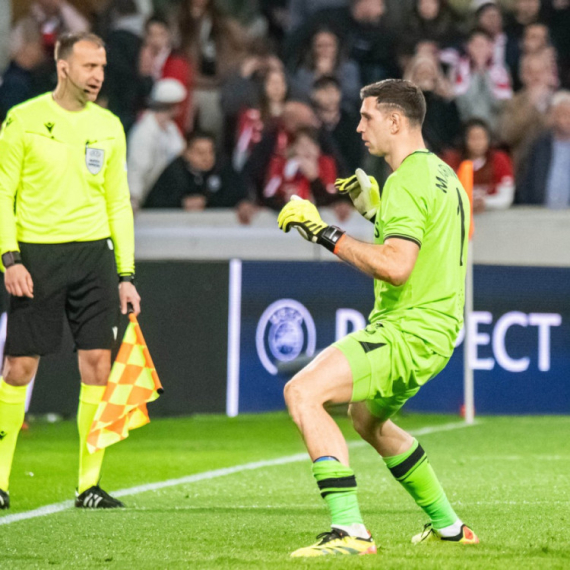

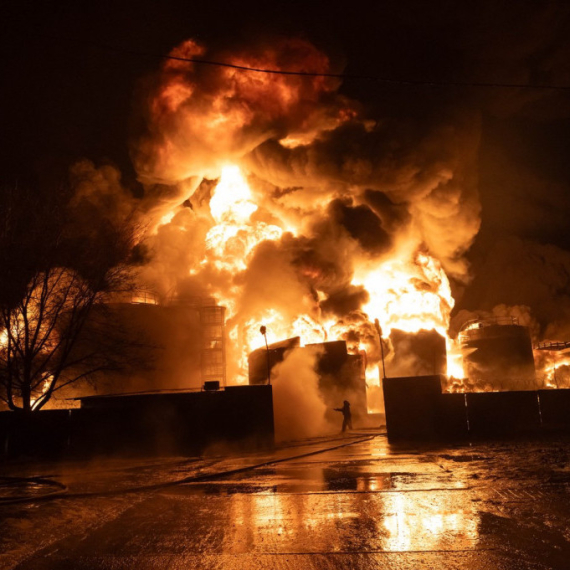


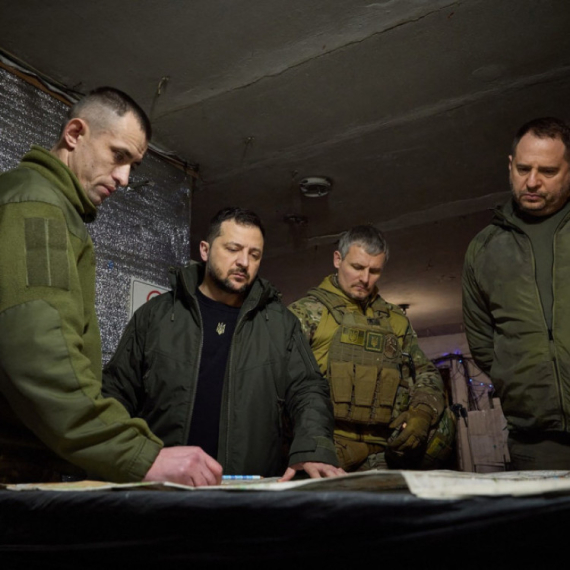
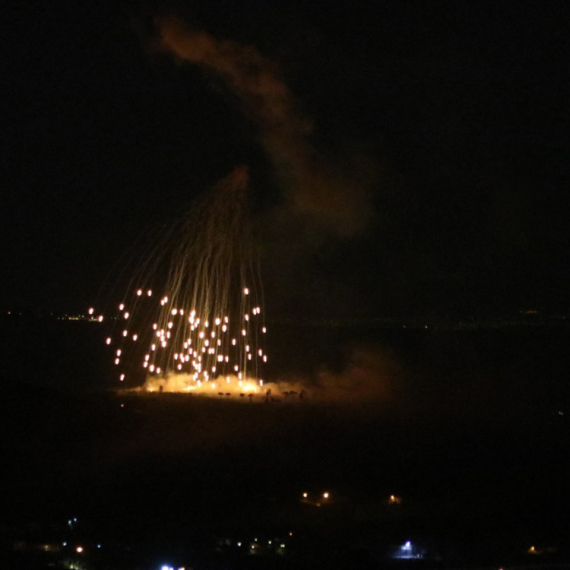
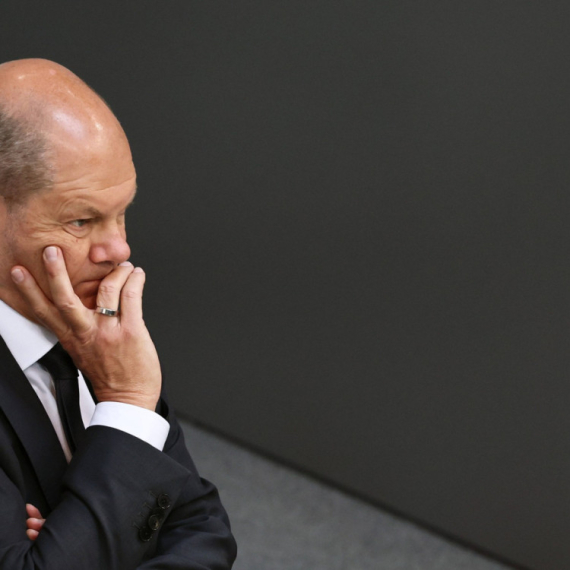
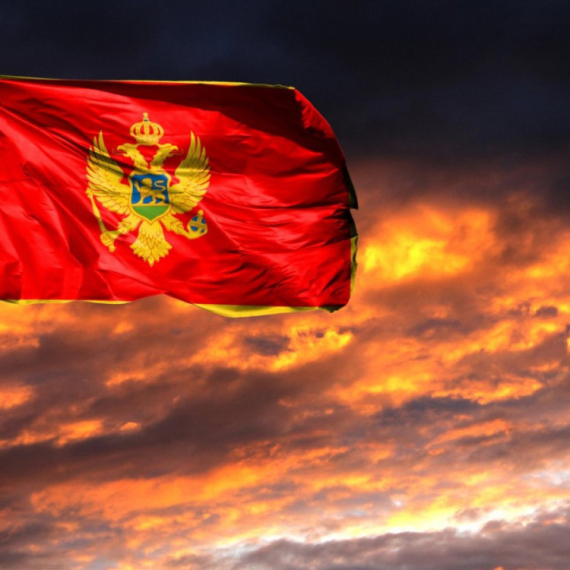









































Komentari 0